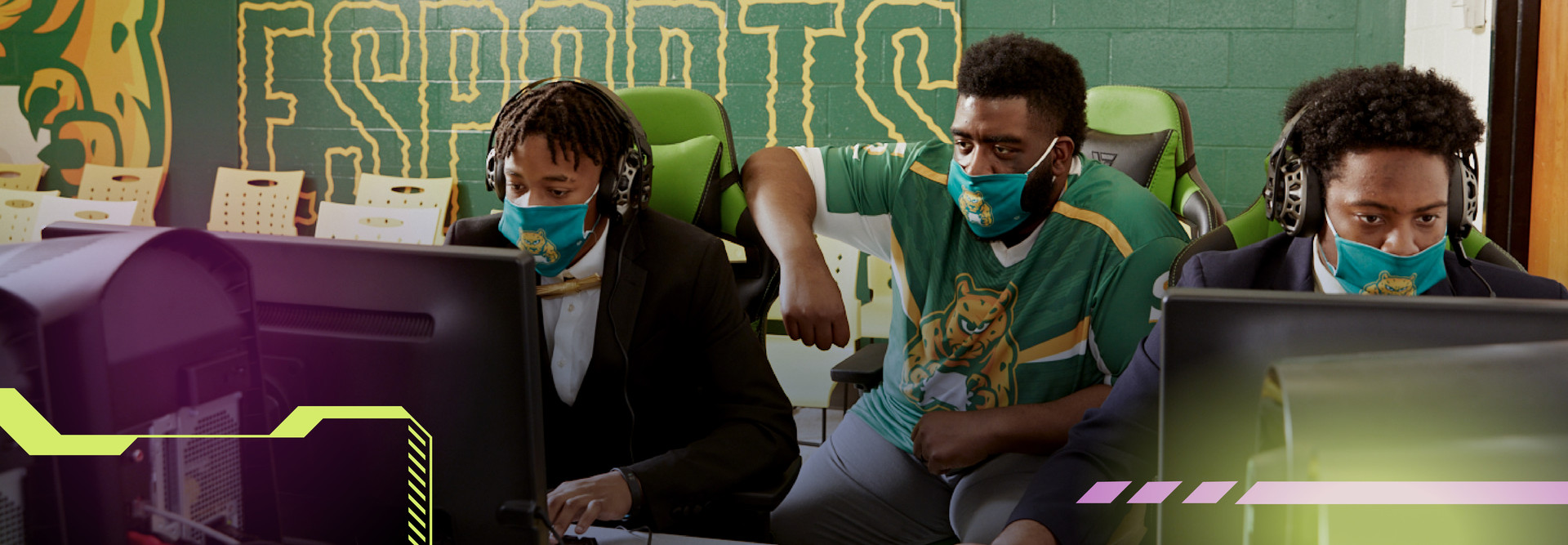Why Should K–12 Schools Level Up Their Esports Programs?
“By investing in an esports team, you’re investing in the whole school,” Bulka says. To level up an existing esports program, it’s crucial to have an invested coach and an administration that sees the value of esports.
Ben Spieldenner, director of professional development for technology integration and innovation at Ashland City Schools in Ohio and Ashland High School esports director, says the program launched in 2019 with support from the school’s principal and superintendent.
The initial goal was to give students with gaming expertise an outlet to share it and feel connected to their school. “The more a student is connected to their school, the more likely they are to stay engaged,” Spieldenner says.
The school, now part of the Esports Ohio league, has varsity, junior varsity and club esports teams. Leveling up those programs means that students are not just “playing a video game” but learning serious skills and getting better at them.
MORE ON EDTECH: Discover information on getting your esports program started.
Spieldenner says leveling up an esports program gives it legitimacy.
“One of the biggest struggles that most esports programs have is the legitimacy of the program,” he notes. “If someone has never seen a real esports match, it’s hard for them to picture what goes on or what it looks like. But it’s really competitive, and you have to be good at it in order to win.”
How Do Investments Allow High School Esports Teams to Prosper?
Tom Dore, head of education for the British Esports Association, which is the U.K.’s national body for esports, says such programs help educators engage students who otherwise might not participate in school activities. Dore, who is also a classroom science teacher, says that this often is the “lightbulb moment” when educators recognize esports as credible and worthwhile.
In the U.K., there is a bracket for more competitive esports teams and one for social players. To level up, Dore says, technology investment is key. “You need to spend a little bit more to get PCs that are good enough to play the games.”
Southern University Laboratory School in Baton Rouge, La., knows this well, as it unveiled the state’s first esports room in January.
The lab school’s esports and media lab consists of advanced gaming headsets, gaming keyboards, gaming chairs, PlayStation 4 consoles, 65-inch smart TVs and more.













